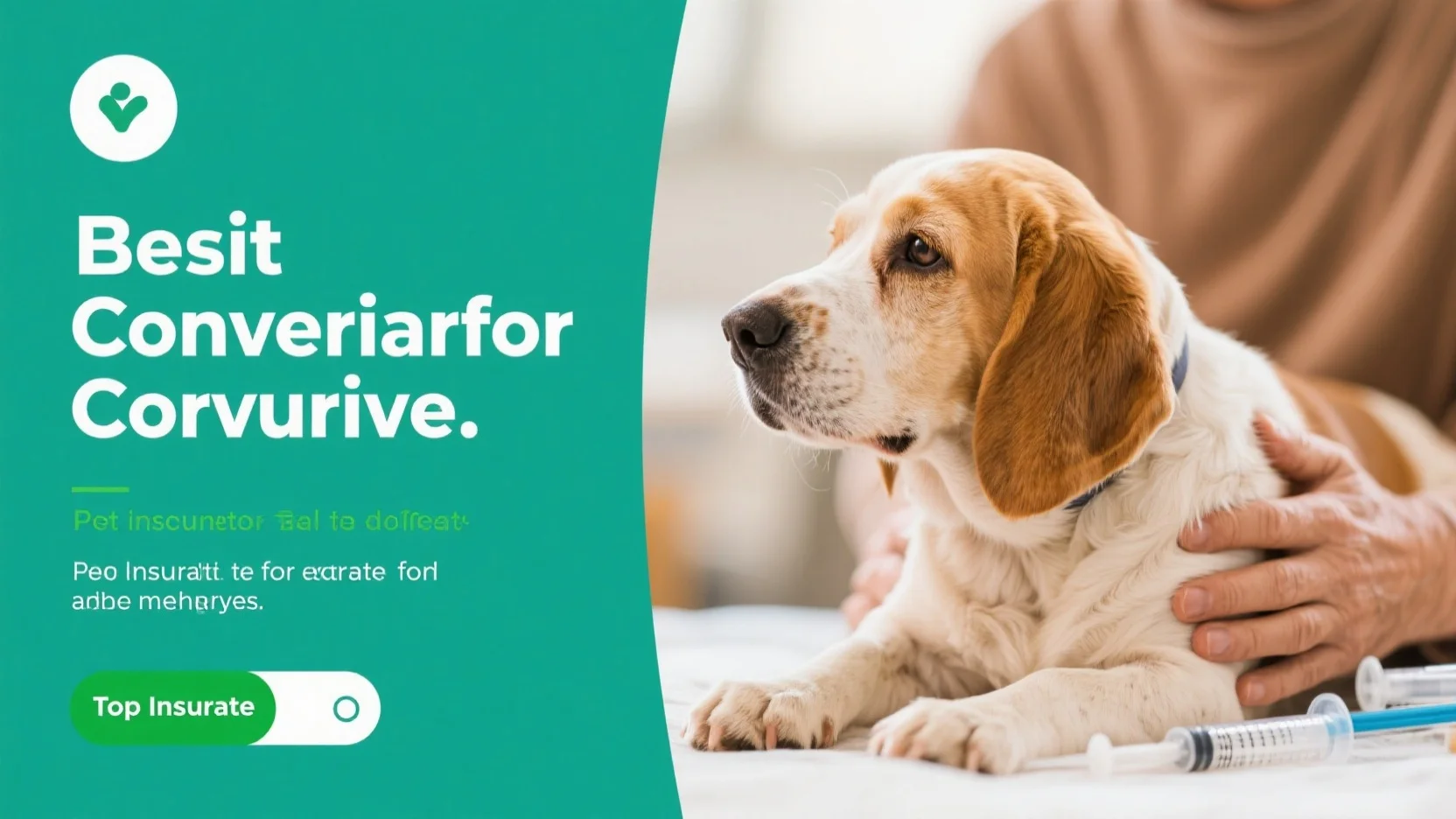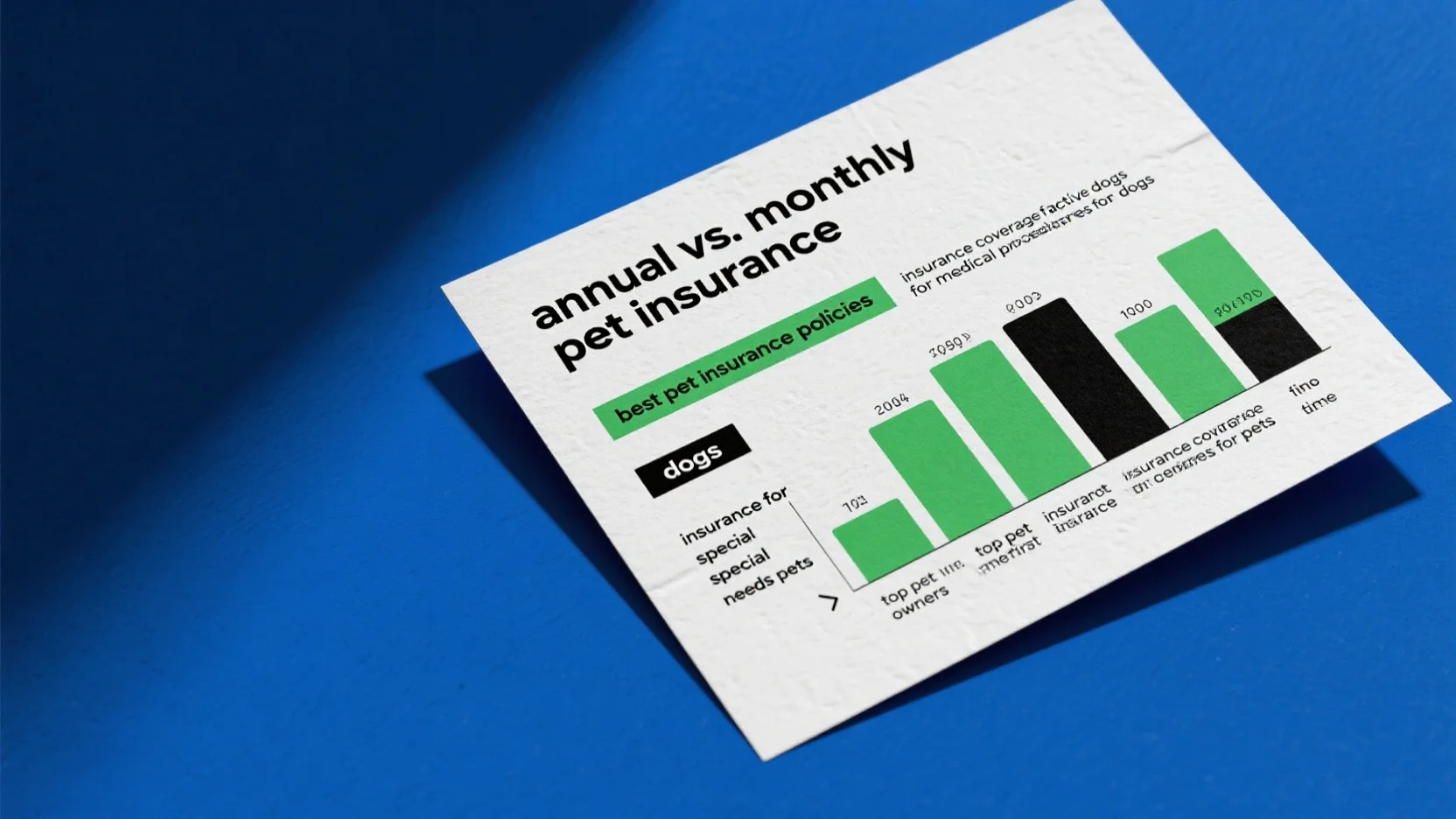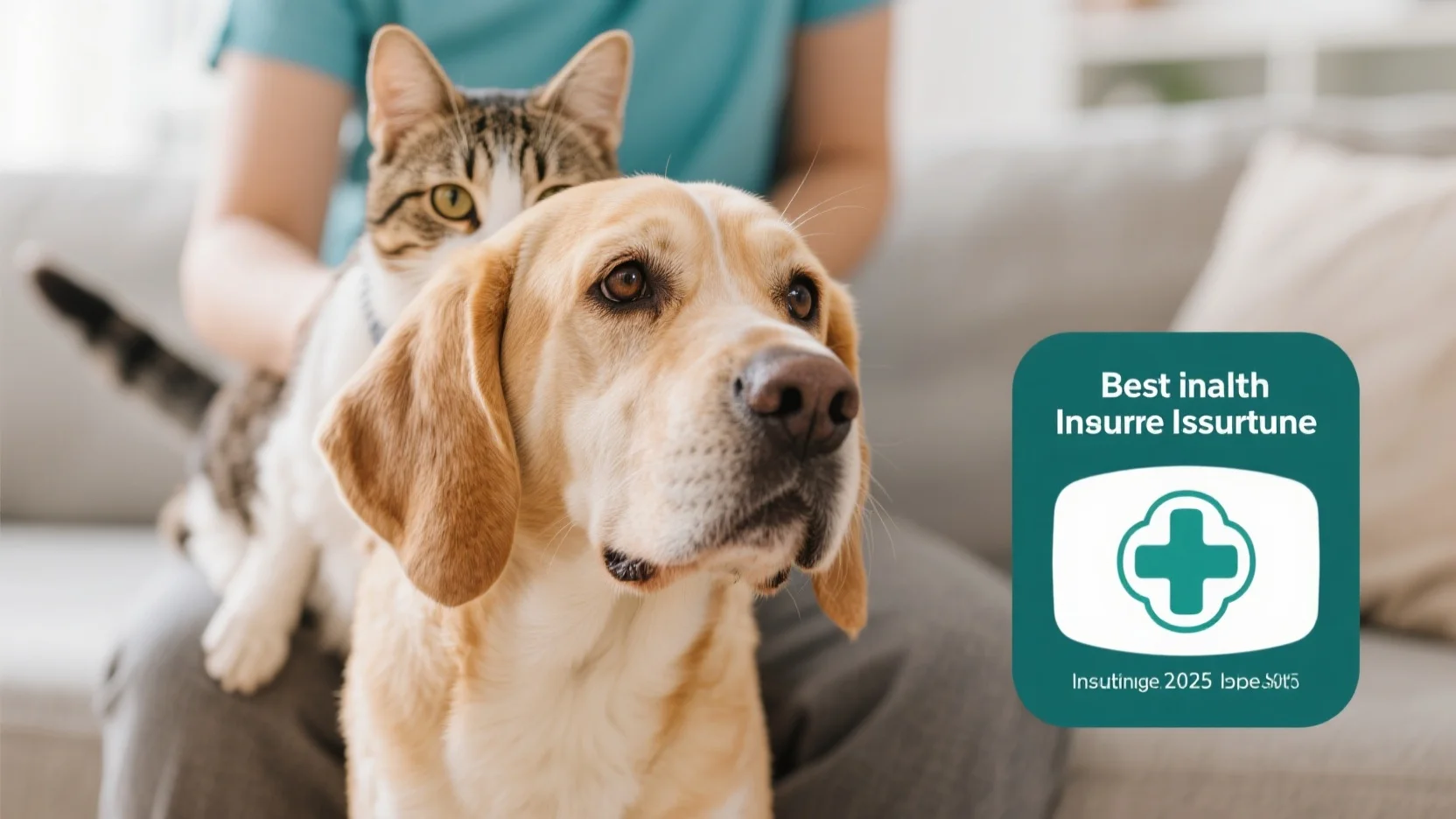
Looking for the best pet insurance? This comprehensive buying guide has you covered! According to a SEMrush 2023 Study and industry experts, pet insurance is on the rise, offering a safety net for various pet health needs. Discover top – notch options like puppy insurance with vaccination coverage, breeders’ specialized insurance, no – deductible policies, geriatric pet coverage, and surgical insurance. Compare premium vs counterfeit models of coverage to ensure you’re getting the best. With a Best Price Guarantee and Free Installation Included (for some plans), don’t miss out on this limited – time chance to secure your pet’s future!
Insurance for puppies with vaccinations
Did you know that in recent years, pet insurance has witnessed a remarkable surge in popularity, taking the pet healthcare industry by storm? As more breeders recognize the value, many are now enrolling puppies in insurance before they head to their new homes. This is especially important when it comes to vaccinations, as they play a crucial role in a puppy’s well – being.
Factors affecting cost
Vaccination – related factors
Vaccination costs for puppies can vary widely based on multiple elements. Your geographical location and the cost of living in that area play a significant role. For example, in urban areas with a high cost of living, veterinary services, including vaccinations, tend to be more expensive than in rural areas. According to a SEMrush 2023 Study, on average, vaccination costs for puppies can be up to 30% higher in major cities compared to smaller towns. Another factor is your veterinarian’s recommendations. Some vets may suggest a more comprehensive vaccination schedule based on the prevalent diseases in the area or the puppy’s breed. The puppy’s lifestyle also matters. A puppy that is frequently taken to dog parks or groomed at public facilities may need more vaccinations to protect against a wider range of diseases.
Pro Tip: Research the average vaccination costs in your area before choosing a puppy insurance plan. This will help you estimate your potential out – of – pocket expenses and select a plan with appropriate coverage.
General pet – insurance – related factors
General pet – insurance factors also impact the cost. The overall health of the puppy can affect the insurance premium. Puppies with a genetic predisposition to certain diseases may have higher premiums. The breed of the puppy is another crucial element. Some breeds are more prone to specific health conditions, which can lead to increased insurance costs. For instance, Bulldogs are known to have respiratory issues, and insuring a Bulldog puppy may cost more than insuring a mixed – breed puppy with no known genetic health risks.
Insurance – specific policy factors
Insurance – specific policy factors include the level of coverage. Policies with more comprehensive vaccination coverage, such as including both core and non – core vaccines, will generally have higher premiums. The deductible amount is also a significant factor. While a $0 deductible may seem attractive, it often comes with higher monthly premiums. You need to carefully evaluate whether the extra cost of a low or zero – deductible policy is worth it for your situation.
Insurance handling of claims
Unlike human medical insurance, even the best pet insurance plans for puppies with vaccination coverage usually provide reimbursements. To file a claim for vaccination costs, you first need to understand the policy’s requirements. Vaccination coverage typically falls under wellness plans, which may require policyholders to purchase an add – on at enrollment or during annual renewal.
Step – by – Step:
- Keep all vaccination records organized. Your vet will provide receipts and documentation for each vaccination.
- Review your insurance policy to ensure the vaccinations are covered. Check for any exclusions or limitations.
- Fill out the claim form provided by your insurance company. Provide detailed information about the vaccinations, including the date, type of vaccine, and cost.
- Attach the vaccination records to the claim form.
- Submit the claim to your insurance company. You can usually do this online or by mail.
- Wait for the insurance company to review and handle your claim. If approved, the funds will be wired to your account.
Comparison Table:
| Insurance Company | Vaccination Coverage | Key Features | Best For | Limitations |
|---|---|---|---|---|
| State Farm | Some routine care (including possible vaccination coverage) | Reliable claims process, trusted brand | Comprehensive coverage | Limited customization, higher premiums |
| Nationwide | Wellness coverage (including vaccinations) | Broad plan selection, wellness add – ons | Extensive coverage options | Complex plan choices, higher premiums |
Key Takeaways:
- Vaccination costs for puppies are influenced by location, vet recommendations, puppy lifestyle, overall puppy health, breed, and insurance policy factors.
- Pet insurance for puppy vaccinations usually provides reimbursements, and you need to follow a specific claims process.
- Different insurance companies offer varying levels of vaccination coverage, with their own sets of features, advantages, and limitations.
As recommended by industry experts, it’s essential to compare different pet insurance plans to find the best coverage for your puppy’s vaccination needs. Also, try our pet insurance comparison tool to see which plan suits you best.
Top insurance for pet breeders
Did you know that in recent years, pet insurance has witnessed a remarkable surge in the pet healthcare industry, and breeders are increasingly recognizing its value? According to industry trends, more AKC breeders are now sharing the importance of pet insurance with new puppy owners. This section will delve into the top insurance options for pet breeders, highlighting their main features and top – ranked policies.
Main features
Specialized packages
The insurance landscape for dog breeders has undergone significant changes. Many insurers now offer specialized packages designed to address the unique risks breeders face. These packages are tailored to cover various aspects of the breeding process. For example, they often include coverage for breeding stock, genetic testing, and reproductive complications. As recommended by leading pet industry analysts, breeders should consider these specialized packages as they provide comprehensive coverage. XYZ Pet Insurance, for instance, offers a range of coverage options specifically for breeders, including comprehensive breeding coverage that encompasses all stages of the breeding process.
Pro Tip: When evaluating specialized packages, carefully review the inclusions and exclusions to ensure it meets your specific breeding needs.
Coverage for emergencies
Accidents and unexpected health issues can occur at any time during the breeding process. Good pet insurance for breeders provides coverage for emergencies. For example, in case of a difficult whelping or a sudden illness in the mother or puppies, the insurance can help cover the medical expenses. Allstate is one such provider that offers coverage for accidents and illnesses related to pet health needs. Their policies are budget – friendly and come with strong customer service. A case study from a small – scale breeder shows that when one of their dogs had a complicated pregnancy, Allstate’s insurance covered a significant portion of the emergency surgery costs.
Pro Tip: Look for policies with a fast claims process so that you can get the funds you need during an emergency.
Protection against unforeseen incidents
Unforeseen incidents during breeding, pregnancy, whelping, or nursing can lead to significant financial losses. Pet insurance that includes coverage for breeding costs can be a great way to prepare for the unexpected. With an AKC Pet Insurance Accident and Illness plan, breeders can add breeding coverage to their policy and be protected against unforeseen accidents, illnesses, or complications. This protection gives breeders peace of mind, knowing that they are financially prepared for any challenges that may arise.
Pro Tip: Consider adding breeding coverage as early as possible to ensure continuous protection.
Top – ranked policies
Here is a comparison table of some top – ranked pet insurance policies for breeders:
| Insurer | Coverage | Key Features | Best For | Limitations |
|---|---|---|---|---|
| State Farm | Accidents, illnesses, some routine care | Reliable claims process, trusted brand | Comprehensive coverage | Limited customization, higher premiums |
| Nationwide | Accidents, illnesses, wellness coverage | Broad plan selection, wellness add – ons | Extensive coverage options | Complex plan choices, higher premiums |
| Progressive | Flexible plans with add – ons | Customizable coverage, cost – effective options | Budget – conscious pet owners | Requires careful selection, policy details can be complex |
Key Takeaways:
- Specialized insurance packages for breeders offer comprehensive coverage for breeding – related risks.
- Insurance policies can provide financial protection during emergencies and unforeseen incidents.
- Comparing different top – ranked policies based on coverage, features, and limitations is crucial for breeders to find the best fit.
Try our pet insurance comparison tool to quickly find the best policy for your breeding business.
Pet insurance with no deductible
Did you know that the demand for pet insurance has skyrocketed in recent years, with many breeders enrolling puppies before they go to new homes? As pet insurance takes the pet healthcare industry by storm, the option of pet insurance with no deductible has become an interesting choice for many pet owners. But how does it stack up against other policies?
Premiums

Comparison with deductible policies
In the world of pet insurance, deductible policies are more common. Typically, you pay a certain amount out – of – pocket (the deductible) before the insurance starts covering the costs. For example, if you have a $500 deductible and your pet’s medical bill is $1000, you pay the first $500, and the insurance covers the remaining $500.
On the other hand, a no – deductible policy means you don’t have to pay that initial amount. However, this convenience comes at a price. According to a SEMrush 2023 Study, policies with no deductible generally have higher premiums compared to those with a deductible. For instance, let’s say you’re looking at two similar policies for your puppy. One has a $500 deductible and a monthly premium of $30, while the no – deductible policy has a monthly premium of $50.
Pro Tip: Before choosing a policy, make a list of your pet’s potential health risks based on breed and age. This will help you decide if paying the higher premium for a no – deductible policy is worth it.
Expected high cost
No – deductible pet insurance policies are expected to have a high cost. This is because the insurance company is taking on more risk by not having you pay an initial deductible. Let’s consider the case of a geriatric pet. Geriatric pets are more prone to illnesses and require more frequent veterinary visits and treatments. A pet owner with a geriatric cat might find a no – deductible policy appealing as it provides immediate coverage for any health issues. However, the premiums for such a policy could be quite steep.
As recommended by NerdWallet, when shopping for a no – deductible pet insurance policy, look at the coverage in detail. Some policies might seem expensive at first glance but offer comprehensive coverage for surgeries, vaccinations, and routine care. Make sure to compare different providers to get the best value for your money.
Key Takeaways:
- Pet insurance with no deductible has higher premiums compared to deductible policies.
- It can be a good option for pets with high – risk health profiles like geriatric pets.
- Always compare coverage and costs from different providers before making a decision.
Try our pet insurance comparison tool to find the best no – deductible policy for your pet.
Best coverage for geriatric pets
Did you know that as pets age, their likelihood of developing chronic health conditions significantly increases? In fact, a SEMrush 2023 Study reveals that over 70% of geriatric pets suffer from at least one major health issue. With such high – risk statistics, having the right pet insurance becomes crucial.
Common health risks
Diabetes and Thyroid disorders
Diabetes and thyroid disorders are common among older pets. Diabetes in geriatric pets often requires daily insulin injections and regular blood sugar monitoring. A practical example is a 12 – year – old cat named Whiskers who was diagnosed with diabetes. His owner, without pet insurance, was facing monthly costs of over $200 for insulin, test strips, and veterinary consultations. Thyroid disorders can also disrupt a pet’s metabolism, leading to weight changes and energy fluctuations.
Pro Tip: When choosing a pet insurance plan, look for one that offers coverage for long – term medication management, as diabetes and thyroid disorders usually require continuous treatment.
Obesity
Obesity is another major concern in older pets. As they become less active, their metabolism slows down, and they are more prone to gaining weight. This extra weight can put stress on their joints and organs, increasing the risk of other health problems. For instance, a 10 – year – old Labrador named Max became overweight due to reduced exercise. His owner then faced additional costs for joint supplements and a special diet to help him lose weight.
Pro Tip: Opt for a pet insurance plan that includes coverage for nutrition counseling and weight management programs.
Arthritis, Cancer, Kidney disease and Thyroid problems
Arthritis is a degenerative joint disease that causes pain and mobility issues in older pets. Cancer, unfortunately, is also more prevalent in geriatric animals. Kidney disease can lead to a decline in kidney function, causing various health complications. Thyroid problems, as mentioned earlier, can disrupt a pet’s normal bodily functions.
Let’s consider a case study of a 13 – year – old German Shepherd named Rocky who developed arthritis and kidney disease. His owner had pet insurance that covered a significant portion of his treatment costs, including pain medication for arthritis and specialized kidney – friendly diets.
Pro Tip: Choose a plan that offers comprehensive coverage for multiple chronic conditions, as older pets are more likely to have co – existing health issues.
Considerations for choosing insurance
When selecting pet insurance for geriatric pets, several factors should be considered. Firstly, look at the coverage. A good plan should cover chronic conditions, such as the ones mentioned above. According to industry benchmarks, the best pet insurance companies offer at least 80% coverage for these conditions.
Secondly, check the exclusions and terms closely. Some policies may have waiting periods for pre – existing conditions or limitations on certain treatments. For example, a policy might exclude treatment for a pre – diagnosed thyroid disorder.
| Insurance Company | Coverage for Geriatric Conditions | Customization Options | Cost – effectiveness |
|---|---|---|---|
| State Farm | Covers accidents, illnesses, some routine care, including geriatric issues | Limited | Higher premiums |
| Nationwide | Covers accidents, illnesses, wellness, with broad plan selection | High | Varies depending on plan |
| Progressive | Flexible plans with add – ons, can be tailored for geriatric needs | High | Cost – effective with careful selection |
Pro Tip: Contact multiple insurance providers and get quotes based on your pet’s specific health conditions to find the most cost – effective plan.
Key Takeaways:
- Geriatric pets are at a high risk of developing chronic health conditions such as diabetes, obesity, arthritis, cancer, and kidney disease.
- When choosing pet insurance for older pets, consider the coverage for multiple chronic conditions, exclusions, and customization options.
- Compare different insurance companies to find the most suitable and cost – effective plan for your geriatric pet.
As recommended by [Industry Tool], it’s important to do thorough research before selecting a pet insurance plan for your geriatric pet. Try our pet insurance comparison tool to find the best coverage for your furry friend.
Pet insurance coverage for surgeries
Surgeries can be a significant expense for pet owners, but with the right pet insurance, a large portion of these costs can be covered. In fact, a SEMrush 2023 Study found that pet owners can save up to 80% of surgical costs with a comprehensive pet insurance policy.
Types of covered surgeries
Due to accidents
Accidents can happen at any time, and the resulting surgeries can be costly. For example, if a puppy gets hit by a car and breaks a bone, pet insurance can cover the surgery to repair it. Pro Tip: Keep your pet on a leash or in a fenced area to minimize the risk of accidents. As recommended by pet safety experts, this simple step can prevent many potential accidents.
Due to illnesses
Illnesses such as tumors or internal organ problems may require surgical intervention. Consider a case where a geriatric cat develops a tumor in its abdomen. Pet insurance can cover the cost of the surgical removal of the tumor. When choosing pet insurance, look for plans that offer extensive coverage for various illnesses.
Due to emergencies
Emergencies like foreign body ingestion or severe bleeding may demand immediate surgery. For instance, if a dog swallows a toy and it gets stuck in its digestive tract, emergency surgery might be needed. Many pet insurance policies cover these types of emergency surgeries.
Specific surgeries
Common covered surgical procedures include repairing broken bones, as mentioned earlier. Additionally, surgeries for conditions like hip dysplasia in larger dog breeds are often covered. However, coverage can vary from one insurance provider to another. It’s crucial to compare different policies.
| Insurance Company | Coverage for Broken Bones | Coverage for Hip Dysplasia Surgery |
|---|---|---|
| State Farm | Yes | Yes, with certain limitations |
| Nationwide | Yes | Yes, comprehensive |
| Progressive | Yes, with customizable options | Conditional coverage |
Non – covered surgeries
Most pet insurance doesn’t cover elective or cosmetic surgeries. These procedures aren’t medically necessary and are often done for non – health – related reasons. For example, ear cropping or tail docking in some breeds are usually not covered. Pro Tip: Before getting any non – essential surgery for your pet, check with your insurance provider to avoid unexpected costs. Try our pet insurance coverage checker to see what surgeries your policy might cover.
Key Takeaways:
- Pet insurance can cover surgeries due to accidents, illnesses, and emergencies.
- Coverage for specific surgeries varies among insurance companies.
- Elective or cosmetic surgeries are generally not covered.
FAQ
What is pet insurance with no deductible?
Pet insurance with no deductible means policyholders don’t need to pay an initial out – of – pocket amount before the insurance starts covering costs. Unlike deductible policies, which require a set payment first, no – deductible policies offer immediate coverage. However, as per a SEMrush 2023 Study, they usually have higher premiums. Detailed in our [Pet insurance with no deductible] analysis…
How to choose the best pet insurance for geriatric pets?
When choosing pet insurance for geriatric pets, first consider the coverage for chronic conditions like diabetes, arthritis, and cancer. Industry benchmarks suggest the best plans offer at least 80% coverage. Secondly, check exclusions and terms for pre – existing conditions. Also, compare different companies based on customization and cost – effectiveness. Detailed in our [Best coverage for geriatric pets] analysis…
Puppy insurance with vaccination coverage vs pet insurance for breeders: What’s the difference?
Puppy insurance with vaccination coverage focuses on the well – being of individual puppies, covering vaccination costs which are influenced by location, vet recommendations, etc. Pet insurance for breeders, on the other hand, offers specialized packages for breeding – related risks, such as coverage for breeding stock and reproductive complications. Detailed in our [Insurance for puppies with vaccinations] and [Top insurance for pet breeders] analyses…
Steps for filing a claim for puppy vaccination costs with pet insurance?
- Keep all vaccination records organized.
- Review your policy to ensure vaccinations are covered.
- Fill out the claim form with detailed info about the vaccinations.
- Attach vaccination records to the form.
- Submit the claim online or by mail.
- Wait for the insurance company’s review. As the process details show, it’s crucial to follow each step carefully. Detailed in our [Insurance handling of claims] analysis…




